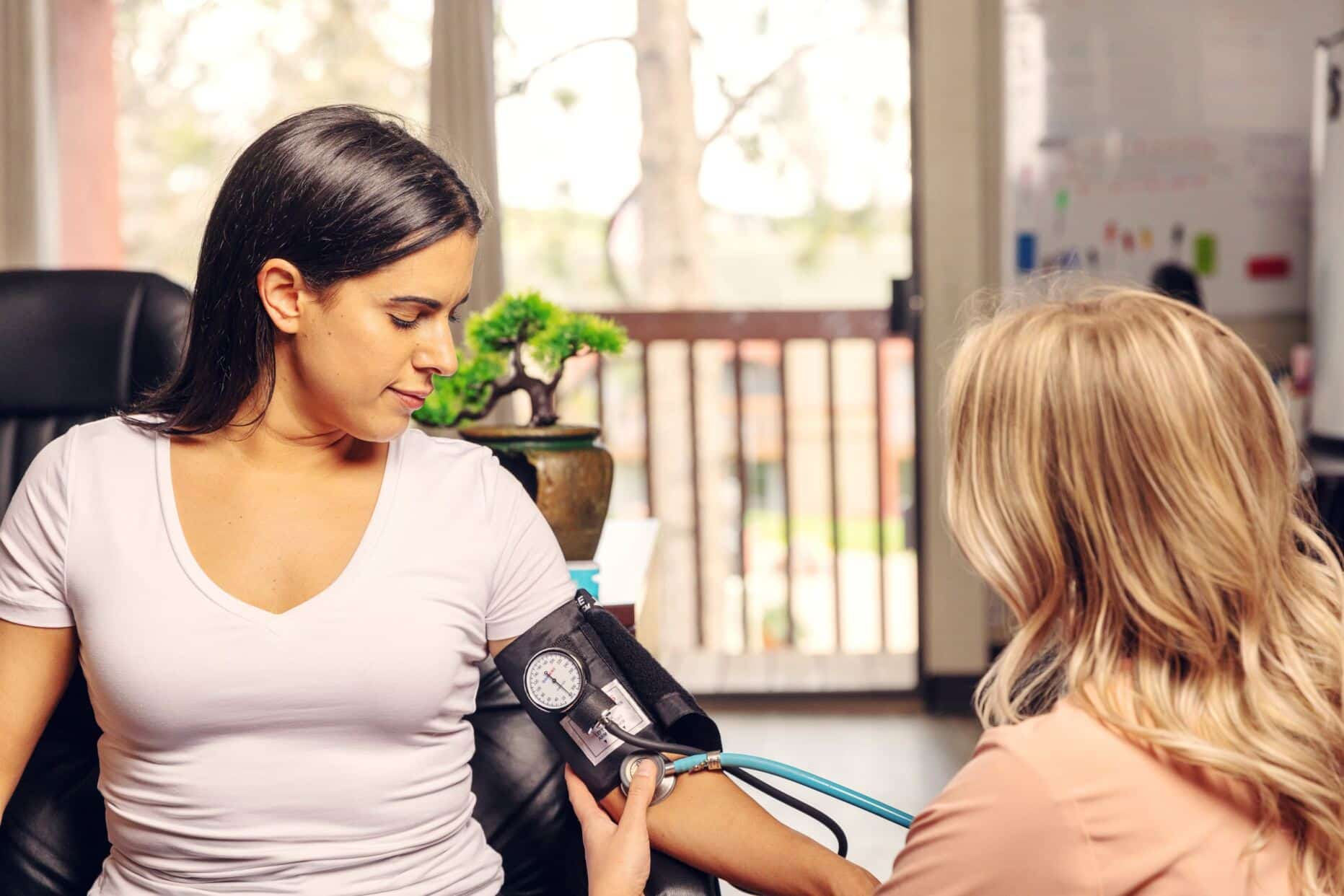At-home detox is the process of safely withdrawing a dependent individual from the substance or alcohol they are addicted to without them being admitted into an inpatient unit. Therefore, an at-home detox is very enticing for many people.
Can You Cure Drug Addiction at Home?
Detoxing at home is preferable for many people because it is confidential, low cost, and provides a safe and non-judgment environment. Many people think it is possible to detox at home, but the reality of it is it’s not ideal for every aspiring recovering addict. Each recovering person needs to determine the type of detox that is right for them whether that be at home, inpatient, or outpatient. A lot of people wonder if drug addiction can be cured. An at-home detox, while possible, is extremely difficult without seeking medical advice, having a safe environment, and a strong support system.
Drug addiction is a long-standing disease identified by uncontrollable drug use in spite of harmful, long-lasting consequences and alters the brain. Drug addiction can be cured and is a complex but treatable disease that affects brain function and behavior. Due to the fact that addiction is a chronic disease, individuals who struggle with substance use disorder disorders can’t simply stop using them for a period of time and be cured. Most patients need long-term care to help them stop using and recover their lives.
In a review of 20 different studies, it was found that an at-home detox was generally safe with high completion rates. The results of the study found that for individuals with alcohol addiction, an at-home detox was 10.6 to 22.7 times cheaper for the individual. Also, due to the cultural stigma attached to the word ‘alcoholic’ or ‘addict’ it can be difficult for people who are afflicted with addiction to reach out for help. This makes an at-home detox ideal for many people.
Making the Decision to Change
Before an individual decides to try an at-home detox, he or she should seek the advice of a medical professional and have them officially agree to the process. An essential next step in the recovery process for drug addiction is to plan out what the recovery process will look like. Not every recovering individual can go through the same type of treatment. For instance, individuals who are highly motivated tend to have the best results from an at-home detox due to their willingness to work with their doctors and have continuous supervision at home during the detoxification process. For other recovering individuals who might not be as motivated or who are highly dependent on a drug, if an inpatient recovery center is not ideal, combining an outpatient recovery center with an at-home detox would be more suitable. This would combine the comfort of detoxing at home with the accountability, structure, and support of an inpatient rehabilitation clinic.
In very few circumstances it is possible to treat certain types of drug addictions at home. For instance, an at-home detox is ideal if an individual who is afflicted with addiction is showing no signs of physical dependence on the drug or is using a drug that is not generally associated with dangerous withdrawal symptoms. At-home detox is most suitable for individuals who have relatively mild levels of dependence and have a good support system.
A strong support system at home helps keep the person afflicted with addiction on track to recovery and avoid relapses. Family and friends make a huge difference in the detox process by motivating the individual with the drug problem to stay on task and keep working through the painful detox process. The involvement of family and friends can strengthen and extend treatment benefits. Having a strong support system, surrounded by family and friends, in one’s own living quarters, has the capabilities to intensify the healing process. An individual who is tormented by drug addiction should not try to do an at-home detox without proper medical supervision because it could be lethal. There are a few times where an individual should not attempt an at-home detox. First, an individual is extremely addicted to certain types of drugs such as alcohol, opioids, or sedatives. Second, if an individual does not have access to a support person and safe housing. Thirdly, the individual has a history of withdrawal seizures or delirium. Finally, if the individual has a problematic drug use history, is suicidal, or has a serious illness.
When to Avoid At-Home Detox
Are alcohol and drugs ruining your life?
Find help now
Detoxing Safely at Home
If an individual is wondering how to overcome an addiction at-home it is critical for their mental and physical health and well-being to have the proper hydration, nutrition, and exercise. Through staying hydrated, eating healthy foods, and getting plenty of exercise, an individual can successfully overcome their addiction at home. To keep up a recovering individual’s nutrition is it important to make sure to eat small and frequent meals. Home remedies for drug detox also include adding in high protein foods like fish and vegetables as well as multivitamins to their diets. These are important to ensure the recovering individual has enough vitamins in their system to withstand the toll their body is about to take. The recovering individual needs to drink plenty of fluids and can take melatonin (a natural sleep inhibitor) if they have sleep disturbances.
Medications are also important to help stabilize the individual’s life and reduce illegal drug use. Regular exercise and practicing meditation enable the recovering individual to better manage the physical and mental stress their body is experiencing from the withdrawal. This allows the individual’s body to flush out the toxins and increase their immune system.
Coping with Withdrawal Symptoms
Detoxing can take a toll on a person’s mental health leading them to become irritable, angry, anxious, have feelings of hopelessness, depression, suicide, delusions, paranoia, and even hallucinating. The agony of detoxing can cause an individual to inflict self-harm or even harm others which can make detoxing at home very challenging for people. Certain medications can be prescribed to reduce and help control withdrawal symptoms.
Avoiding Relapse
Detoxification is not treatment but only a step in the process. Individuals can use medications to help re-establish normal brain function and decrease cravings. Behavioral therapies are also used to help modify the recovering addict’s behaviors and attitudes related to drug use.
It is also important for the individual to know support and advice phone numbers for the specific substance or drug they are detoxing from. When detoxing at home a recovering individual needs to have a monitoring system, such as a breathalyzer if recovering from alcohol addiction, in order to keep the individual accountable. During the recovery process, relapse is likely and can be fatal to a recovering addict due to their bodies having less of a tolerance for the drug.
That is why having the appropriate measures in place to ensure this doesn’t happen is crucial. They can include having a phone number to call when the cravings get bad, being surrounded by family and friends who are supportive of the healing process or practicing meditation and exercise. Structured aftercare is also important following detox to ensure the individual will have long-term recovery and continue to achieve their goals. Aftercare can be counseling, group support, phone apps, cognitive behavioral therapy, and dietetics. Aftercare is necessary because an individual with a substance use disorder disorder has a brain structure and function that has been altered. This results in changes that persist long after the drug user has discontinued use. This leads to an individual who is addicted to drugs being at risk for relapse long after periods of abstinence which can have potentially deadly consequences.
References
- Substance use recovery and diet. Medline Plus.
- Treatment Approaches for Drug Addiction. National Institute on Drug Abuse.
- Principles of Drug Addiction Treatment: A Research-Based Guide (Third Edition). National Institute on Drug Abuse (NIDA).
- Home detox- supporting patients to overcome alcohol addiction. Australian Prescriber.
- General practitioner’s views of home detoxification. Drug and Alcohol Review.
Medical disclaimer:
Sunshine Behavioral Health strives to help people who are facing substance abuse, addiction, mental health disorders, or a combination of these conditions. It does this by providing compassionate care and evidence-based content that addresses health, treatment, and recovery.
Licensed medical professionals review material we publish on our site. The material is not a substitute for qualified medical diagnoses, treatment, or advice. It should not be used to replace the suggestions of your personal physician or other health care professionals.







